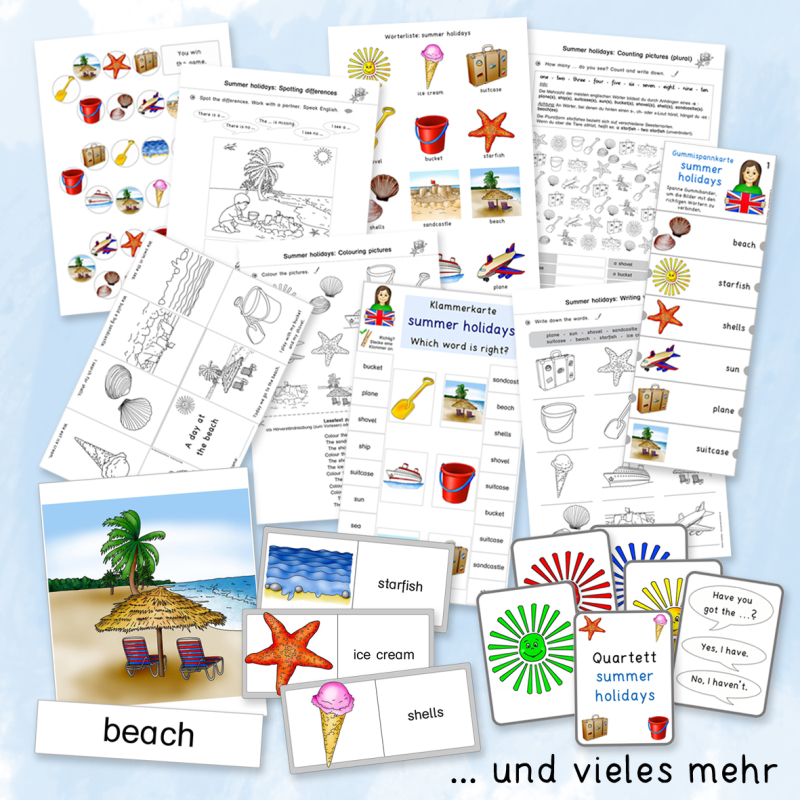Ferien auf Englisch: A Comprehensive Guide to Understanding "Holidays"
Verwandte Artikel: Ferien auf Englisch: A Comprehensive Guide to Understanding "Holidays"
Einführung
Bei dieser feierlichen Gelegenheit freuen wir uns, in das das faszinierende Thema rund um Ferien auf Englisch: A Comprehensive Guide to Understanding "Holidays" vertiefen. Lassen Sie uns interessante Informationen zusammenfügen und den Lesern frische Perspektiven bieten.
Table of Content
Ferien auf Englisch: A Comprehensive Guide to Understanding "Holidays"

The German term "Ferien" translates directly to "holidays" in English. While the concept of taking time off from work or school for rest and relaxation is universal, the nuances and specific connotations associated with "ferien" in German culture can be quite distinct from the English understanding of "holidays." This article aims to provide a comprehensive overview of "ferien" in English, exploring its various aspects, significance, and benefits.
Understanding the Scope of "Ferien"
"Ferien" encompasses a broader spectrum of time off than the English "holiday" might initially suggest. While "holiday" often refers to a single day or a short break, "ferien" can encompass extended periods of time, including:
- Schulferien (School Holidays): This refers to the official break periods from school, often lasting several weeks during the summer, Christmas, Easter, and other holidays. These periods are crucial for students to recharge, pursue personal interests, and spend quality time with family.
- Betriebsferien (Company Holidays): This refers to periods when businesses or organizations close down for a period of time, often during the summer months. This allows employees to take a longer break and ensures that the company can undertake maintenance or other activities during the downtime.
- Urlaub (Vacation): This refers to a planned trip or period of time taken for leisure and relaxation, often involving travel and exploration. While "Urlaub" is technically a separate term, it falls under the broader umbrella of "Ferien."
The Cultural Significance of "Ferien"
In German culture, "Ferien" holds immense cultural significance. It represents a deeply ingrained value of prioritizing rest, rejuvenation, and spending quality time with loved ones. Taking "Ferien" is seen as essential for maintaining well-being and achieving a healthy work-life balance.
Benefits of "Ferien"
The benefits of taking "Ferien" are numerous and far-reaching. They include:
- Improved Physical and Mental Health: Taking time off from work or school allows individuals to reduce stress, improve sleep, and engage in activities that promote physical and mental well-being.
- Increased Productivity: Returning to work or school after a period of "Ferien" can lead to increased focus, motivation, and creativity.
- Strengthened Relationships: "Ferien" provides valuable opportunities to spend quality time with family, friends, and loved ones, strengthening bonds and creating lasting memories.
- Personal Growth and Development: "Ferien" allows individuals to pursue personal interests, learn new skills, or simply enjoy the freedom of having time to themselves.
- Cultural Enrichment: For many, "Ferien" involves traveling to new places and experiencing different cultures, broadening horizons and fostering global understanding.
FAQs about "Ferien"
Q: What are the most popular times for "Ferien" in Germany?
A: The most popular times for "Ferien" in Germany are the summer months (July and August), Christmas (December), and Easter (March/April). These periods often see a surge in travel and tourism activity.
Q: How long are "Ferien" typically?
A: The duration of "Ferien" can vary significantly depending on the type of "Ferien" and the specific institution or company. School holidays typically last several weeks, while company holidays can range from a few days to several weeks.
Q: Are "Ferien" mandatory in Germany?
A: While "Ferien" are not legally mandatory, they are deeply ingrained in German culture and are generally expected. Most companies and schools have set "Ferien" periods, and it is considered uncommon to deviate from these schedules.
Q: What are some popular activities during "Ferien"?
A: Popular activities during "Ferien" include:
- Traveling: Visiting family, exploring new places, or taking a relaxing beach vacation.
- Outdoor Activities: Hiking, biking, swimming, or simply enjoying the outdoors.
- Hobbies and Interests: Pursuing personal passions, such as reading, painting, or playing music.
- Social Gatherings: Spending time with family and friends, attending festivals, or visiting museums and cultural attractions.
Tips for Planning and Enjoying "Ferien"
- Plan Ahead: Booking flights, accommodation, and activities in advance can help ensure a smooth and enjoyable experience.
- Set a Budget: Determine a realistic budget for "Ferien" expenses and stick to it.
- Pack Smart: Pack only what you need and consider the climate and activities you plan to engage in.
- Embrace Flexibility: Be open to unexpected events or changes in plans.
- Disconnect from Technology: Take a break from work emails and social media to truly relax and recharge.
- Prioritize Rest and Relaxation: Allow yourself time to unwind, sleep in, and simply enjoy the break.
- Be Present: Focus on the moment and appreciate the experiences you are having.
Conclusion
"Ferien" is more than just a period of time off; it is a cultural phenomenon that emphasizes the importance of rest, rejuvenation, and personal fulfillment. Taking "Ferien" allows individuals to return to their daily lives refreshed, energized, and better equipped to face the challenges ahead. By embracing the spirit of "Ferien," individuals can foster a healthier work-life balance, strengthen relationships, and enrich their lives in countless ways.








Abschluss
Daher hoffen wir, dass dieser Artikel wertvolle Einblicke in Ferien auf Englisch: A Comprehensive Guide to Understanding "Holidays" bietet. Wir danken Ihnen, dass Sie sich die Zeit genommen haben, diesen Artikel zu lesen. Bis zum nächsten Artikel!